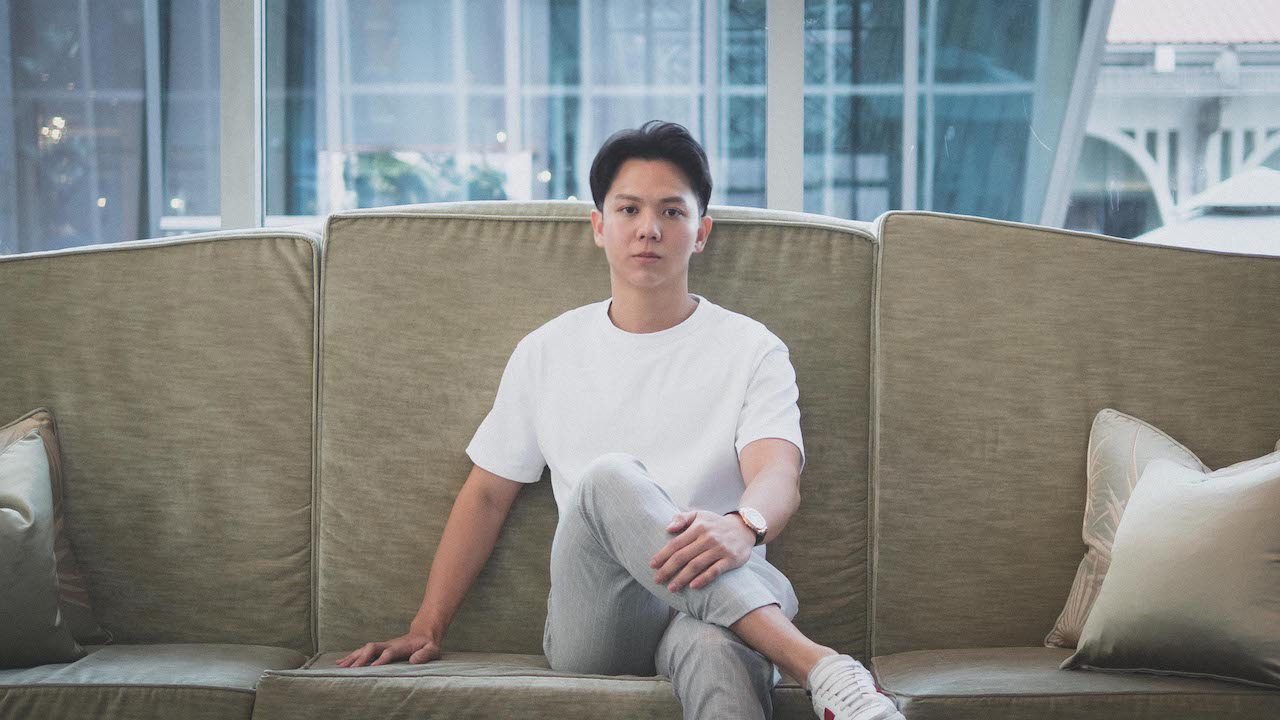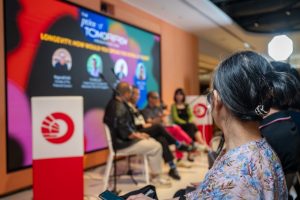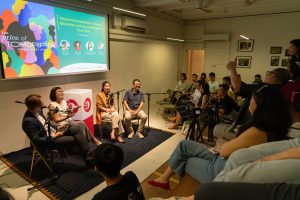Every couple of months or so, my old JC friends and I get together for an evening of poker.
Our little gambling sessions start around 8 PM, and last till the wee hours of the morning when either a warm bed or a concerned parent calls.
It’s not, and was never about money though. Our $50 buy-in isn’t so much gambling capital as it is money we don’t mind losing to keep our friendships alive.
As far as I know, none of us actually studies the body language of anyone else at the table. We don’t calculate bet sizes or the probability of a winning hand to the nearest 5 decimal places. And we definitely don’t go home to read up on how to get better at the game.
Everything is chill. It’s casual, and most people I know who also play poker do it the same way.
Ex-professional poker player, Aloysius Chay, however, is not like most people. And get this: this story isn’t even really about poker.
Like many other 16-year-olds, the secondary 4 student spent most of his free time on the computer. He was a big fan of real-time strategy online game Warcraft III, and thanks to the many hours spent playing, became pretty close to members of the game’s online community. When many of Warcraft’s elite players transited to playing poker, many others followed.
Introduced to poker by a good friend he met online, the ability to double his pocket money while outsmarting his opponents proved too alluring to resist. Through trial and error, he learnt the rules. Short of playmates, he introduced his schoolmates to poker as well.
They were hooked. Nevermind that O’ level examinations were just around the corner—they would play late into the night. The buy-in was only about 10 or 20 dollars and the blinds only 10 and 20 cents. But I understand. When I was that age, my life revolved around 2 things: friends and having enough money to go out with said friends.
“Back then, we didn’t even have a place to play because no parent wanted their kid to be playing poker at all, much less during the exam period. But we had a friend whose Dad didn’t really care. And so we went to this really run-down house and his Dad would just smoke a lot and leave us alone. We didn’t even have a poker chip set! We just used coins and played until sunrise. We loved it!” Aloysius tells me.
Somehow, Aloysius fared well enough in his O’ level examinations to secure a place in Temasek Polytechnic’s School of Business. Even with a new environment to get used to, the leisure and resort management student was still constantly working on his poker game, honing his skills by reading whatever he could on the subject.
From general books about poker to forums dedicated to strategy, he devoured everything in an attempt to be better at the game he loved.
Seizing a pause in the conversation, I ask him if he already had plans to turn pro all those years ago. He smiles, shakes his head, and tells me that his traditional Chinese parents wouldn’t have approved of such a career choice.
In fact, when his mother found a deck of playing cards in the house, she walked into his room crying and ripped the cards up in front of him, all the while half-scolding and half-pleading with him not to gamble.
That night, Aloysius wrote her a 7-page letter explaining why what he was doing wasn’t gambling. He had exhausted every resource, studying the game and understanding the odds; he was always the youngest player at private games, but he could hold his own against the adults who hated seeing him win and just wanted to bust him out.
While he almost always won, Aloysius didn’t spend the money or change his lifestyle. According to him, poker was just a game with many different levels and he just wanted to get to the next one. Get better, play bigger.
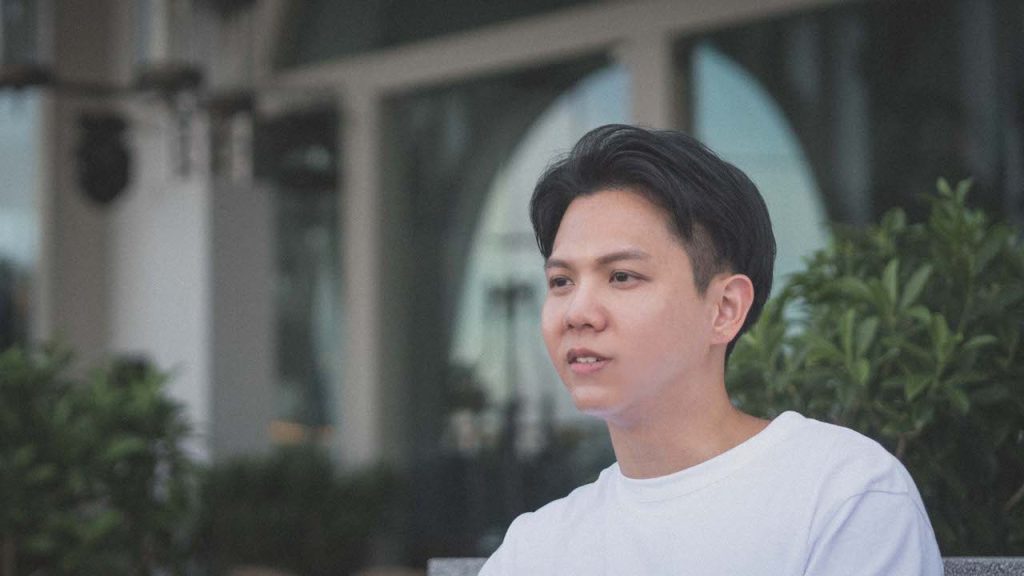
Maybe some part of me knows that the man across the table is adept at bluffing. Maybe it was the mention of his family. Either way, I’m intrigued and perplexed. Was it really that simple? Did he need the money? What was his childhood like?
Aloysius entertains my questions, albeit with small nuggets of information. He tells me that he comes from a humble family and grew up in a lower middle-income household; his Dad rides a bike; he went to a neighbourhood school in his estate.
Nothing gives me any sense of the complete picture until Aloysius shares a very specific memory upon further probing.
“There was this time my Dad offered to buy supper home and he asked me what I wanted to eat so I told him 3 kosong prata. He said he’d buy one and warm [store-bought, frozen prata] two others when he got back. So I was like WOAH, it’s only 70 cents. But that was the extent my parents were going to, to save money. I really appreciate what they’ve done for me.”
This affected Aloysius in two ways.
Because of how his parents were with money, he shares that he grew up with a scarcity mindset, and makes it absolutely clear that he doesn’t blame them for it.
“Essentially, I wouldn’t have been able to meet these really smart people—like my current business partner, Galvin, who was from RJC—because I came from a neighbourhood school. My parents would tell me like, you know you must be careful. It’s a dog-eat-dog world. I mean we don’t blame them for it but they’ll pass down some values that aren’t exactly the best.”
Second, and perhaps more obviously, it fuelled his desire for financial freedom. He wanted the ability to have a choice, which winning at poker provided. Together with the adrenaline rush whenever he won, and the prospect of “levelling up”, he kept playing.
And then, at just 22-years-old, during his first semester-break in university, Aloysius left for Macau.
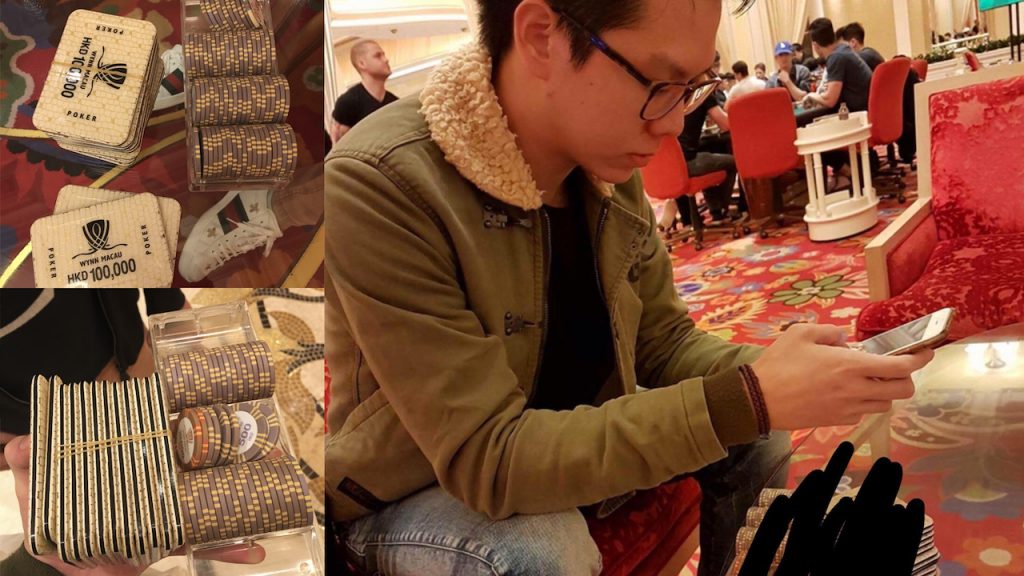
Of what, I’m not entirely sure.
When Aloysius tells me about how much he used to win, or how he “made more than a uni grad”, he doesn’t sound arrogant. Instead, it comes across as very matter-of-fact.
Yes, I made this much after evening out wins and losses. Yes, it is more than a university graduate.
There is a hint of pride in his voice, but as far as I can tell, he isn’t flexing.
As nervous and excited as Aloysius was at upping his game, nothing could have prepared him for Macau.
“I wasn’t used to their style of play. When we play home games in Singapore, we play for fun. In Macau it’s different. It’s very polarising. You either have the tourists who’re just there for kicks, or professionals who treat the game very seriously. And these guys are professional “sharks”. They’re extremely conservative and I wasn’t used to that,” he tells me.
This meant that he lost. Big. S$20,000 big.
He was in the casino almost every day, playing for hours on end. Overnight sessions were common since “fish” only came in after dinner. Back-to-back days of constant card analysis on a fucked-up sleep cycle meant the professional was far from his best. Losing was fast becoming a familiar feeling.
Life away from the table wasn’t any better. He had just broken up with his girlfriend, and home in Macau was a shitty, cramped, cockroach-infested rented apartment he shared with other gamblers.
“There were days where I felt really, really bad. You play until morning only to lose and you’re just fucking tired. Then you leave the casino, the sun is blazing, and you still had to walk back to that shitty apartment. Those days, I’d ask myself, why am I doing this? I’d think of returning to Singapore to study and getting a 9-5 [job] after—that kind of feeling.”
Amidst all that abject misery, he realised that something didn’t add up.
For every 3 hours playing at the poker table, he had spent an hour at home studying poker theory and strategy from books and websites that came from the Western, English-speaking world—the language being one most Macanese sharks didn’t understand.
And in comparison to angmohs who had access to these resources as well, Aloysius’s ability to speak mandarin gave him an edge. He was “PR”-ing with Chinese businessmen or “whales”, many of whom gradually took a shine to him and would notify him whenever they were headed to the casino; sometimes even inviting him to their games.
The odds, objectively, were in his favour. He shouldn’t have been losing.
He decided to extend his stay by another 20 days and rode out the bad luck. He tells me that when he began winnning, he started believing in himself and his ability again; he knew he was better than them, and had to use the situation to his advantage.
By the time his first stint in Macau was over, he had not only recovered his initial S$20k loss, but won another S$20k on top of that.
On his return to Singapore, the memory of his time in Macau lingered. Galvin, his friend and future business partner, constantly tried to convince him to just “fuck it” and leave school. The way Galvin saw it, there was money just waiting to be made and the boys were wasting time.
Aloysius eventually agreed.
Soon after, Aloysius shares that his parents started seeing stability in what he did. From a pile of cash he would give them whenever he won or felt like it, he started giving them a regular contribution regardless of how he did at the poker table. They stopped looking at the money they did (or didn’t) receive in terms of wins and losses.
This time, when he decided to put school on hold to move to Macau for the next 2 years, they let him.
There, Aloysius got to work. 7 days a week, in stretches of 8 to 12 hours, he took on sharks, whales and everything in between. The stakes gradually increased, and so did Aloysius’s mastery of the game.
He tells me he was making a 5 to 6 digit figure per month; at his peak, he was playing games with S$200 and S$400 blinds.
Oh, and the buy-in? S$100k.
Not that it bothered him—he tells me that his bankroll management meant that he afforded it rather comfortably. Once, he even won S$200k off of a single whale in one night.
But all good things come to an end. In the summer of 2016, a couple of big fish walked into the casino. In the ensuing battle of luck vs skill, luck triumphed, big money was lost, and Aloysius decided to take a break from poker instead of going on a work trip to Las Vegas to participate in the prestigious World Series of Poker tournament.
At the same time, the grind of professional poker was also starting to wear Aloysius down.
“I would say that for most poker players, towards the end of their careers, they don’t enjoy playing as much. In casual games with friends, you’re probably playing almost every hand you’re dealt. But for the professionals right, they play only about 20% of their hands; you almost never get to play at all. A lot of time is spent waiting and if you fold, it’s even longer,” he tells me.
Tired of the game and reeling from the loss, Aloysius and his partner decided to return to Singapore to take a break from everything. As luck would have it, it was because of this break that Aloysius found his next challenge.
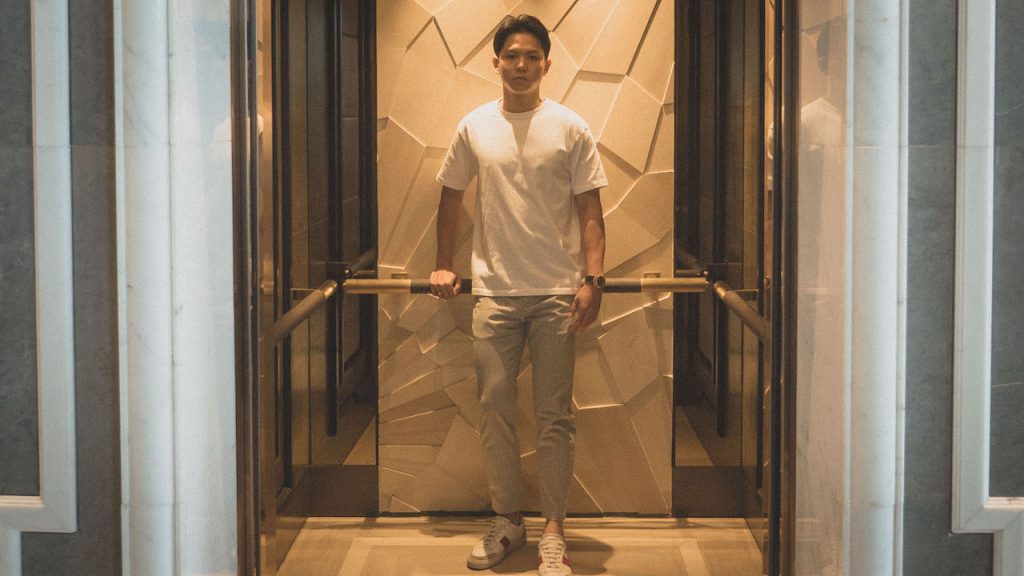
For the benefit of those who might be unfamiliar, let me just explain how dropshipping works.
Dropshipping is essentially a supply-chain model in which the retailer (in this case, the dropshipper) doesn’t keep goods in stock but transfers the customer’s order and shipment to the wholesaler—the wholesaler being the one who ships the product directly to the customer.
For example, you’re on Facebook/Instagram and you see my ad (influencer or otherwise) for a watch or coat (or anything at all) that you think looks great. It’s pretty fucking dope, so you click on that ad which leads you to a website created by me, the dropshipper. You place your order.
While you wait patiently for your new watch/coat to arrive, I forward your order to a factory in, say, China, who picks your watch off of their shelves, in their warehouse, and sends it to your address provided by me.
I’m essentially the middleman whose hands your watch often never passes through because I don’t hold inventory. The profit I make is the difference between the price I list the watch for on my website and the cost I pay to the wholesaler plus shipping fees.
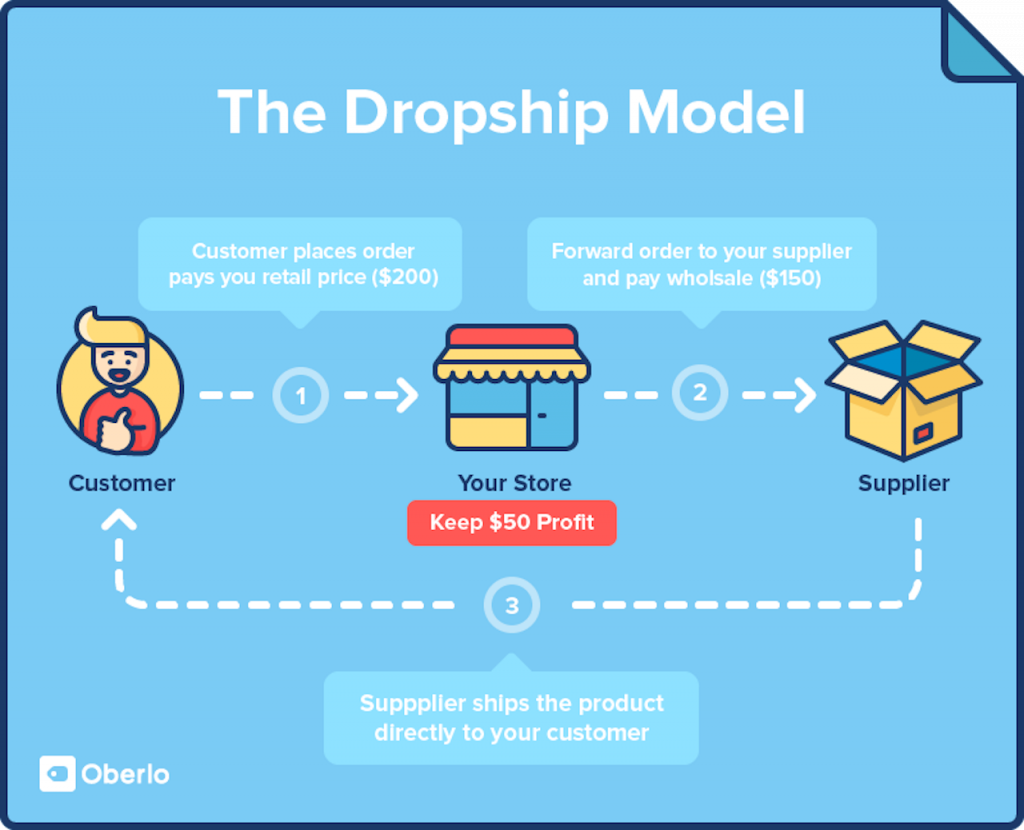
But let me clarify: selling at a mark-up is nothing new. Huge international brands like Nike and Adidas pay workers in the ass-cracks of Mexico, Vietnam, China, wherever, a small sum to make their goods, then charge their customers hundreds of dollars for the finished product. Similarly, reselling for profit has been around for ages. The $2 you pay for kailan at NTUC was probably bought for 20 cents from a wholesaler in Jurong.
Here’s the problem. Because of what’s known as “blind shipping”, a process in which my wholesaler’s information is either changed to mine or completely left out of the shipping label, you’ll never know where your watch actually came from. In the case of double blind shipping, my wholesaler will likewise never know your contact information.
This prevents the customer from going straight to the wholesaler (and vice versa). It also means is that if I wanted to, I could be the one in charge of everything. In theory, if I wanted to protect my reputation, I’d ensure you only get the best.
But if you take into account how easy it was creating my online store using apps/programmes/services like Shopify, Oberlo, and AliExpress—taking a grand total of just 32 minutes— technically, I could sell you junk, shut my site down should you complain, and start all over again under a new name.
And guess what. If you buy something from my new online store, you’d have no idea that you’re dealing with the same middleman.
Throw in the fact that my profit margin on that single watch, from you, one single customer, is astronomical (buying it for $1.29 in China and selling it for $40). What are the odds that I’m going to bother about you?
Before we go any further, it has to be said that the situations described above are of course, worst-case scenarios. I’m not saying that Aloysius has resorted to such methods to make a quick buck.
What I am saying is that dropshipping is an extremely lucrative business model. It’s all about reselling, profit maximisation and strategic advertising and marketing. There is big money to be made if you get it right—as Aloysius and his partner eventually did.
Also, because dropshipping appealed to many, the competitiveness made it ideal.
“It was an exciting time for us since it was a chance to prove how good we could be at something other than poker. I was pretty confident but during that initial period, we actually failed about 20-30 times.”
Even though dropshipping didn’t need much (if any) capital investment, it still required serious work. Before they could start selling to customers, they first had to know what these customers wanted. Lacking experience in e-commerce, they didn’t do their due diligence in either market or product research.
Eventually, the constant failures took a toll on both of them and they decided to go back to the poker grind. Aloysius, however, continued trying e-commerce on the side, occasionally finding small pockets of success which gave him glimpses of hope. This further fuelled his confidence and desire to make it big.
After flying to China to show his partner the progress he’d made and the potential for even more growth, Aloysius convinced Galvin to give dropshipping one more shot. Once more, the pair returned to Singapore together and knuckled down.
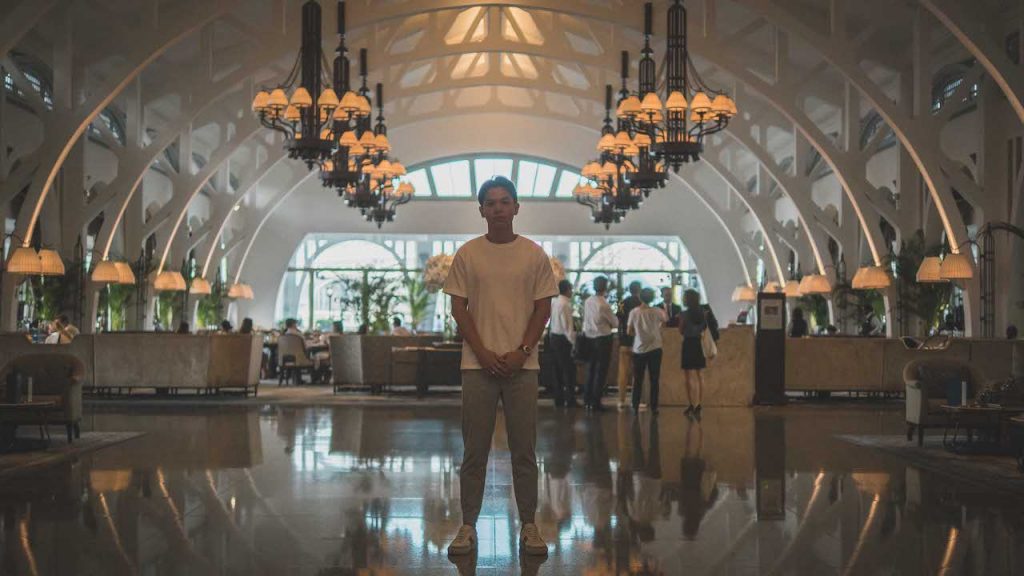
Desperate to not repeat their earlier mistakes, the pair trawled websites like Taobao and Amazon, even ‘spying’ on their competitors’ pages, trying to predict what the next trend would be and the products that they could sell.
Slowly, the business started taking shape. They began hiring, and outsourced more of the basic work including replying to emails, customer support, and the handling of the store’s social media account.
Being the aggressive poker players they were, the pair went all out running ads on Facebook and using the cash they had leftover from poker to scale their business. Elsewhere, Aloysius’s poker skills also came in handy when networking. Just like how he used to ‘PR’ Macanese whales, Aloysius did the same with others in the trade.
“I think one thing I realised while playing poker was how important networking is. Towards the end [of my time in Macau] right, the biggest and easiest games to play were the private games—the ones you have to know people to even be able to get in. Your network is your net worth,” he explains.
When he moved into the ever-evolving world of e-commerce, Aloysius knew that without any help, he would’ve eventually reached a plateau and been stuck, unable to improve. To prevent this, he attended conferences and events, meeting people who could not only advise him, but offer new perspectives instead of him trying to do everything himself.
Needless to say, all of Aloysius and Galvin’s hard work eventually paid off. Fast-forward a year after the pair started their first store, money was rolling in to the tune of S$60k per day—an amount Aloysius shares was “crazy” and “way more” than what he got playing poker. Once more, he repeats that though the money was good, it was the challenge that captivated him.
“When we went into dropshipping, we knew that there was potential but didn’t know how big it could be. Dropshipping was just very fun. I mean, business is a different thing altogether. You get to watch something grow. You’re learning a lot of new things and there are just so many possibilities; endless things you can do.”
Pausing for a minute, he continues:
“Making money is great for sure. But after a while, you realise that you don’t really need that much.”
I ask the question that’s been on the tip of my tongue since the man in front of me sat down.
“How rich are you?”
“I get by,” he says, smiling, undoubtedly having expected this.
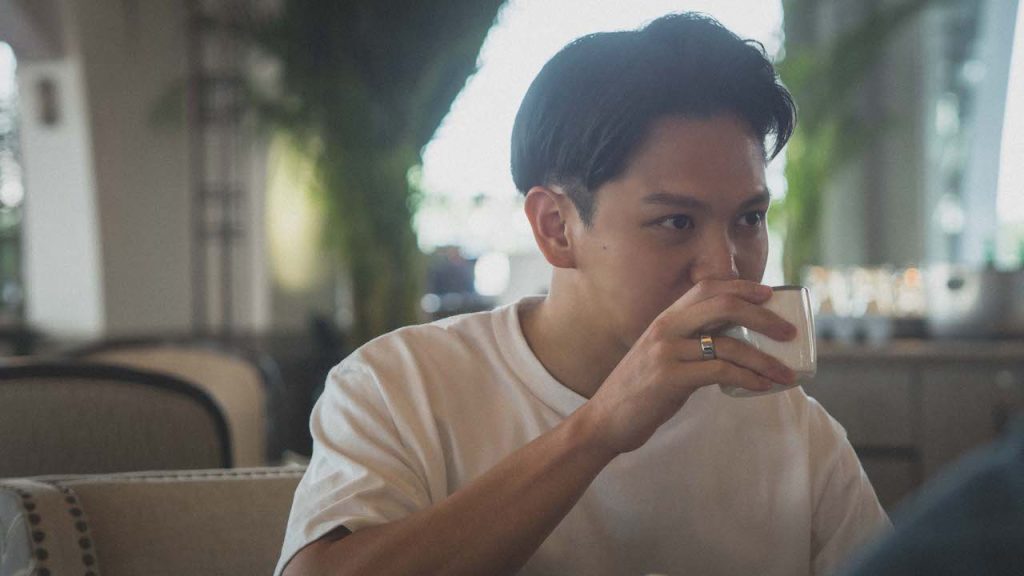
On the way home from our conversation, and in the days since, I’ve gone over every bit of information I have on the man, time and again trying to figure him out; trying to understand the motivation behind his actions. Each time, however, I’ve come up frustratingly short.
As much as I would like to wholeheartedly believe Aloysius when he tells me that it’s the challenge that drives him, I just can’t shake the feeling that money plays a far larger role in his quest to success that he lets on—whether he realises this himself or not.
But am I just overthinking everything? Does it matter if Aloysius is indeed all about the money? Is there anything wrong with that?
As difficult as he is to pin him down, however, there are a few things I think I can safely say about him.
One, Aloysius is the very definition of a hustler. Unlike those who throw the term around casually, using it to make themselves feel better about the daily grind, this guy is the real deal. He has serious ambition.
After his dropshipping store settled down, Aloysius tried his hand at blockchain technology, jumping on the bitcoin bandwagon in the cryptocurrency boom of 2017/8. Today, he’s a huge advocate of biohacking, a process in which he makes changes to his lifestyle in order to optimise performance and reach maximum efficiency. He’s even come up with a free PDF guide about the importance of decision-making.
He is always on the lookout for the next big thing. Life is about constant evolution and growth for him, be it in his professional or personal life. That, I find, is hugely deserving of respect.
Two, because of this hunger and desire to be better, he will do whatever it takes, weathering any storm to get to where he wants to be.
Personally—and I might be way off the mark here—I believe this stems from him having a chip on his shoulder.
Aloysius mentions his neighbourhood-school roots enough times for it more than just a coincidence, the most telling of which goes something like this:
“You’re not as stupid as … neighbourhood school doesn’t mean we cannot catch up with them [those in top schools]. I spent a lot of time reading and I can hold my ground against a lot of these guys.”
It’s not that Aloysius is degrading his neighbourhood-school roots or neighbourhood schools in general. But somewhere along the line, someone must’ve said something that he took seriously to heart.
Again, whether I’m right or not doesn’t matter. Aloysius sets his mind to something, puts in the necessary hours of hard work and knocks it out of the park. If he fails, he stands right back up again, using the positives to fuel his self-belief. In doing so, it didn’t really matter where he came from. Whichever way you look at it, that’s pretty fucking legit.
So no matter what you might think about him, just remember: if you want to win big, you have to bet big. Do your homework and go all in. At the same time, you have to be prepared to lose.
I just hope to God I never come up against him at the poker table.

